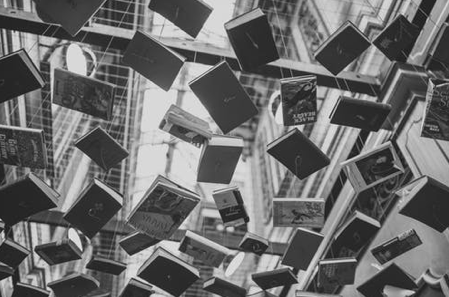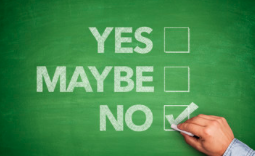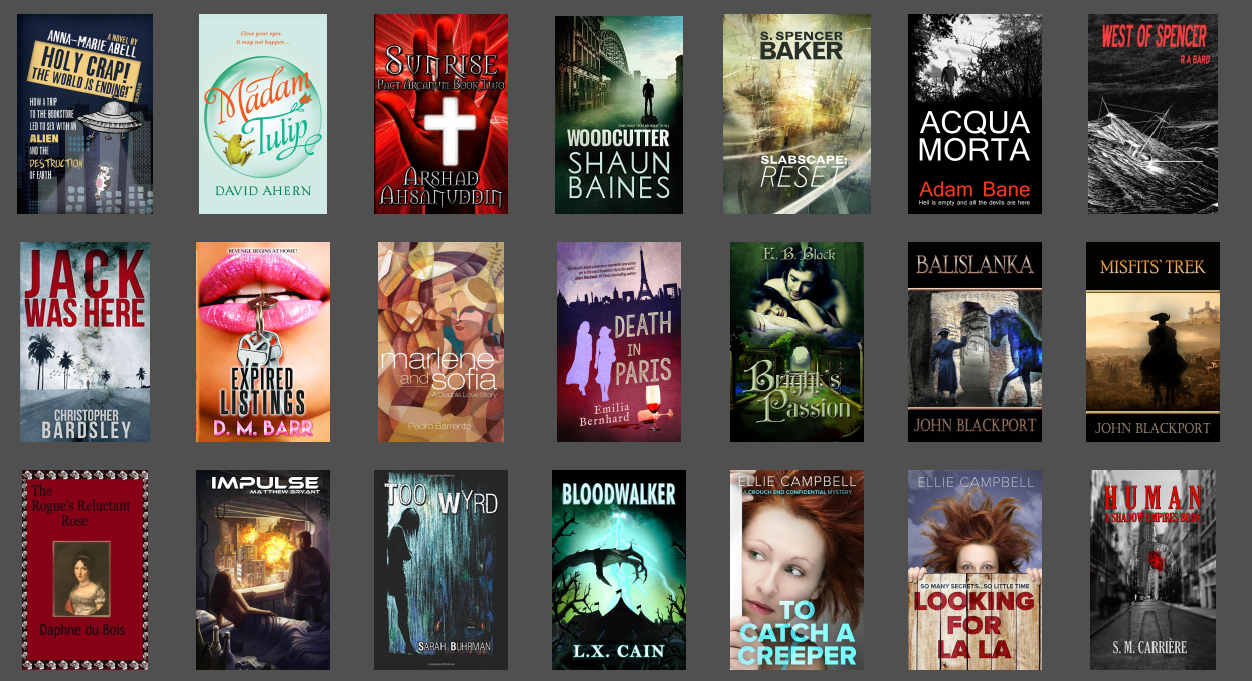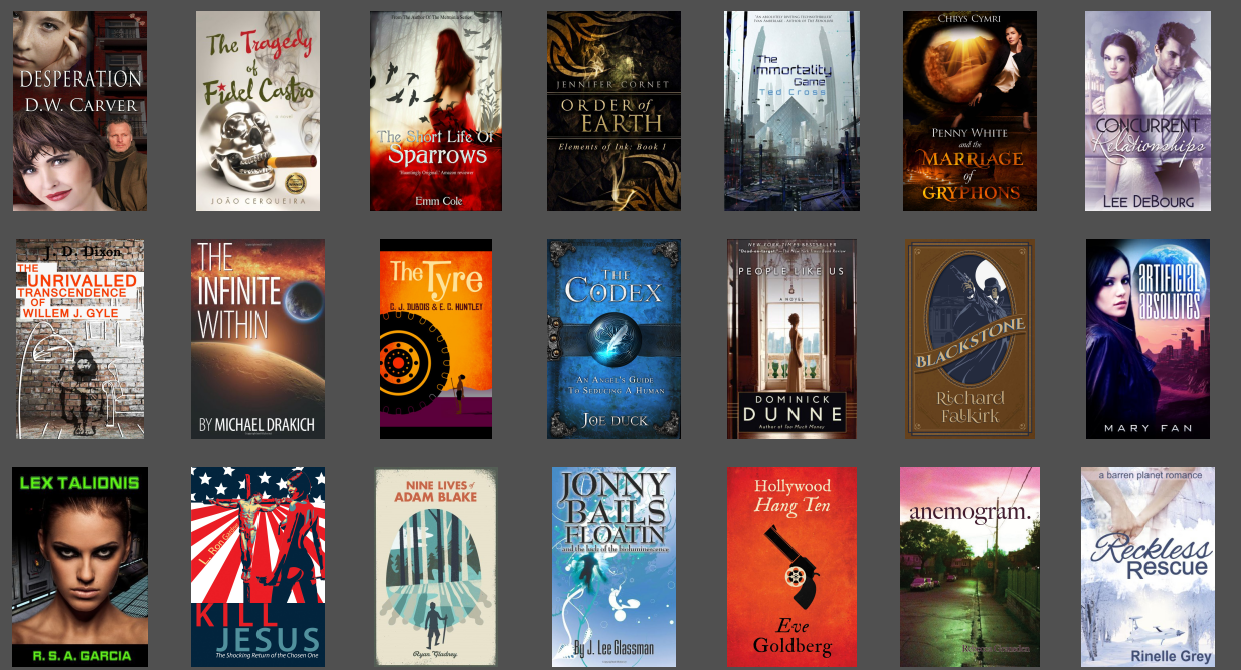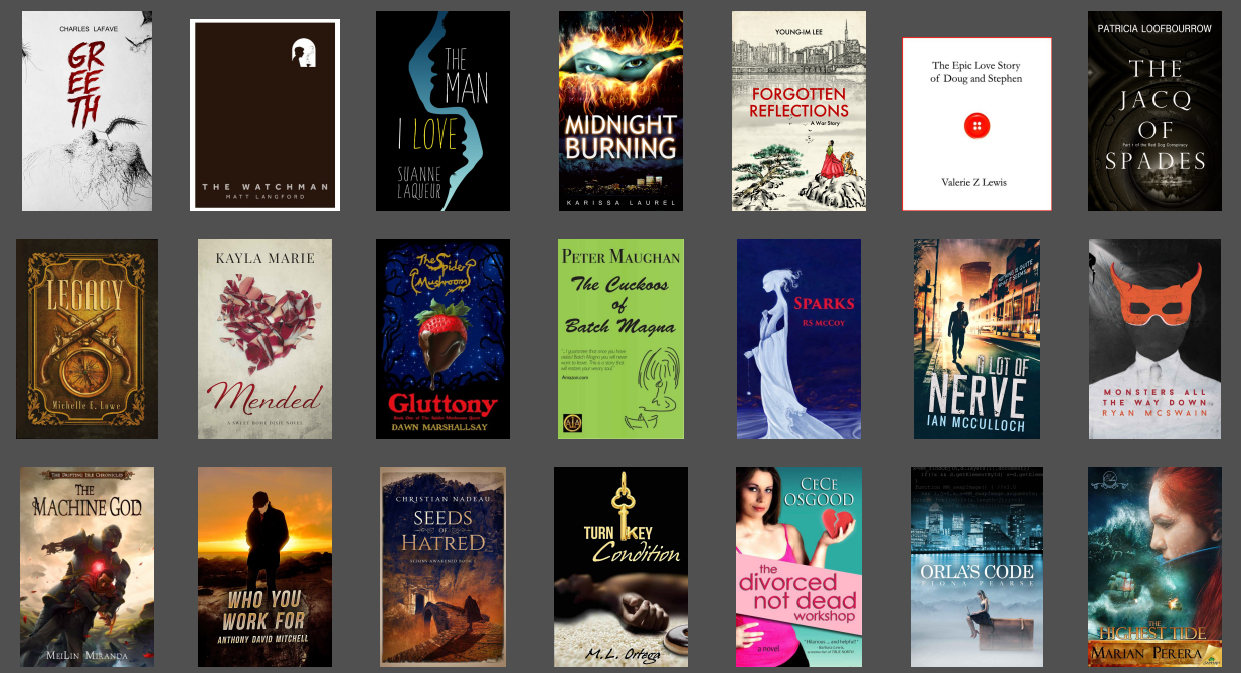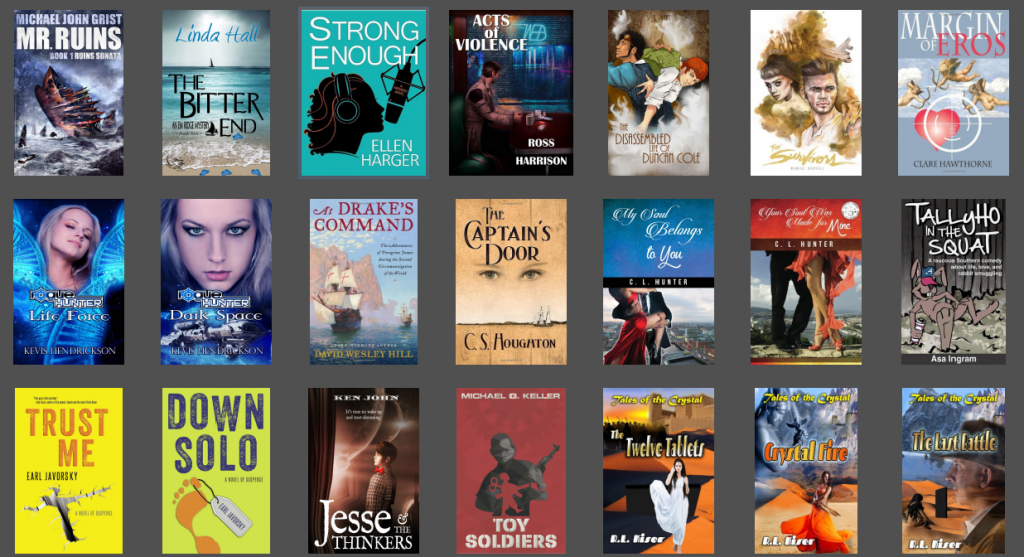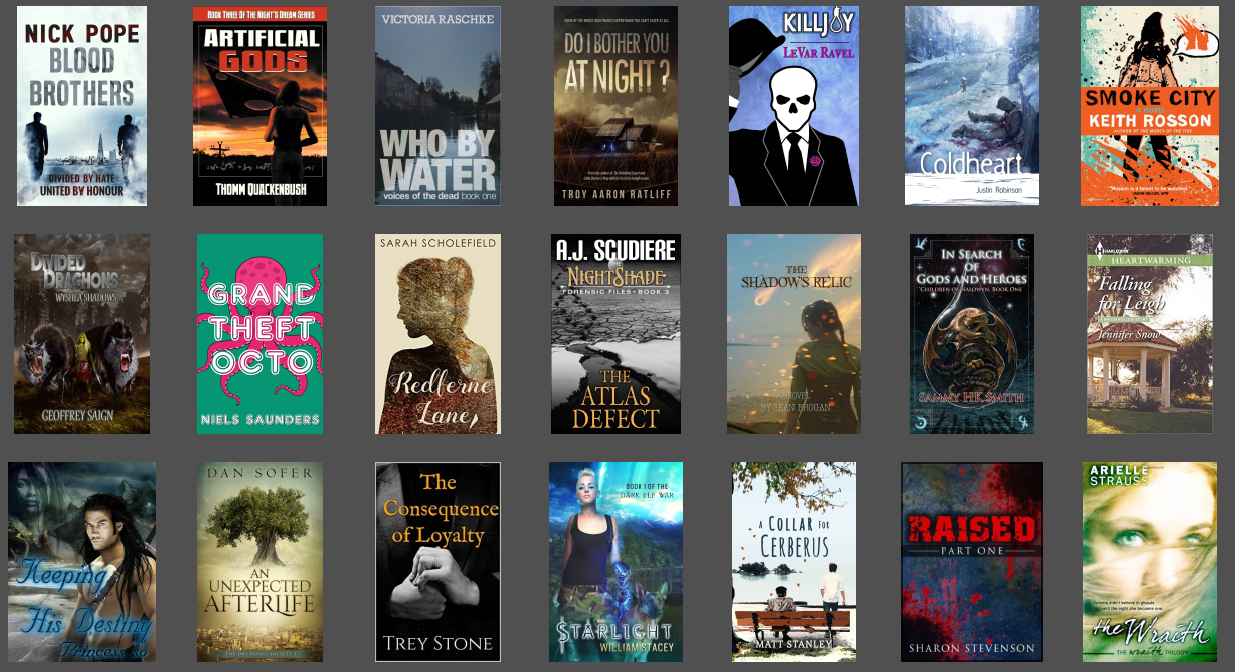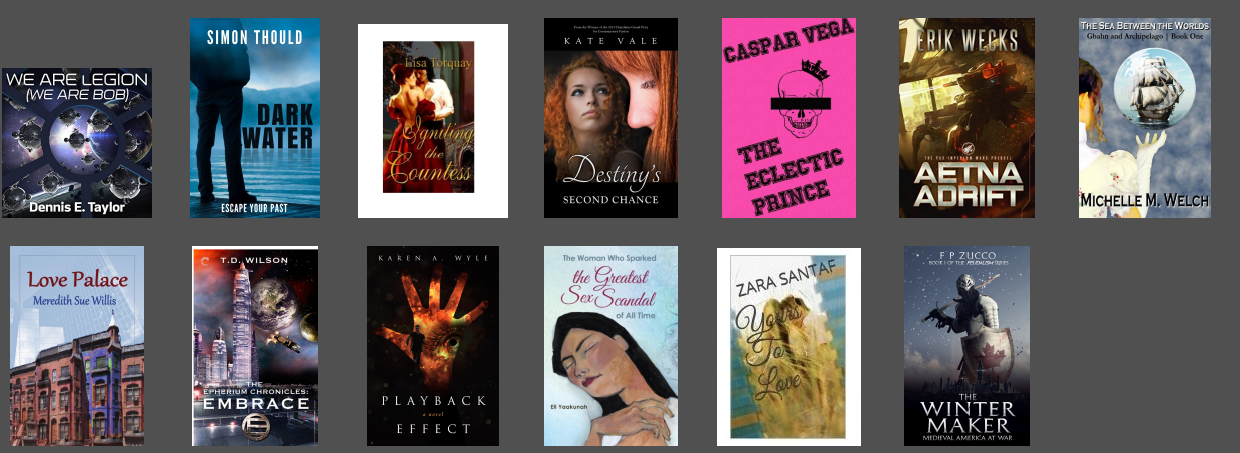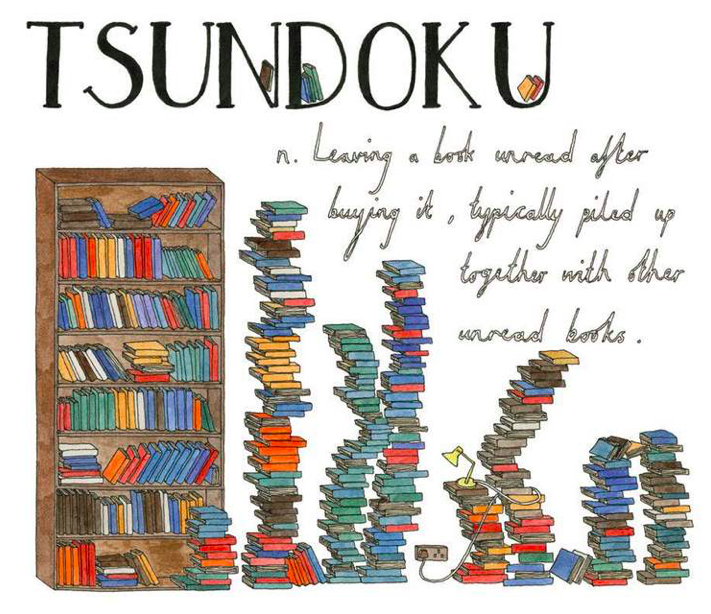I haven’t posted much lately and that’s because I haven’t actually read much. That is a sentence I wouldn’t expect to write, especially since I’m home social distancing. But here’s the thing, I fell into a huge project. HUGE.
On March 20th I mentioned that I started collating my Goodreads shelves. At the time I was just tidying up a bit, making sure all my books had page numbers, etc. But then I decided to get rid of all the anthologies I’m probably never going to read. Then I thinned out the short stories. Well, after that post I decided to just keep on going.

I had 6199 books on my To-Be-Read shelf (that’s after that first round of deleting, let me remind you). And many of those had been on the shelf since 2012. If I haven’t read the 60-page novella I’ve had since 2012, I’m probably never going to, right? But in order to decide what to keep or not, I needed to read the description, check if it was part of a series, and in many cases read several reviews.

On a side point, if anyone was paying attention to my likes on Goodreads, I must have looked like a monster. I liked hundreds on one, two, and three-star reviews. I already owned these books. I didn’t need to read good reviews and be convinced to buy them. I wanted to read bad reviews and see if the criticisms were deal-breakers for me. I did often read good reviews for balance if I didn’t see anything glaring in the bad reviews. But I mostly read the critiques. So, I must have looked like someone out to bitterly upvote only bad reviews.
Anyhow, this was not a quick process and I had 6,199 books to make decisions on and then to delete on Amazon and/or Calibre if I was not keeping it. It took months. I wasn’t putting in full 8-hour days or anything, but I did work on it every day. Let me tell you that I did not think that I was falling into a 2-month project when I started, but that’s how long it took.
I wanted to be thorough, which was surprisingly difficult. Keeping myself engaged and not allowing myself to lazily make decisions wasn’t easy. More than once I found myself almost deleting or keeping something before I’d really understood what I was reading. For example, I almost reflexively deleted a book because the character’s last name was Trump. I caught myself and made myself finish reading the description before I made a decision. I’d have to pull myself back on task, maybe take a break and come back to it.

This idea of thoroughness also meant that once I had been through all the books I had listed on Goodreads, I cleaned up my Calibre library (made sure all the author names were in the same format and there were series names, etc) and did a pass from the Amazon side of things, to be sure there wasn’t anything there not listed on Goodreads. (Though, other than some kids’ book there were very few.) But these last two steps took a fraction of the time the first step took.
This project has so occupied my time and thoughts that I can hardly believe I’m done. I keep thinking I’ve left something out. But it’s time to call it done and this post is going to be my emotional conclusion to it.
I’ve written similar posts before (recently even) and there is a lot of overlap between that last post, for example, and this one. But I’m doing it again for my own sense of closure and in case anything new came up. At some point (probably a thousand books in) I started dropping notes here in anticipation of this post. A lot of them were snarky in their first iteration, but I’ve tried to filter that out in this second pass.
All in all, it’s been an interesting process, this deep dive into my own reading habits. I can completely see where I went through certain reading phases. When I first got my Kindle in 2012 (I can see that by when I started shelving ebooks) and discovered free books, I was obviously in a YA stage. And being new to the idea of freebies I indulged widely. OMG, I owned so many YA books!
Once I burned out on them, I obviously over-corrected and dove headlong into erotica (the harder and darker the better). When I burned out on that, I had a bit of a bizzaro phase and then dropped into mystery/thrillers. Each step was astoundingly obvious, once I was looking. As was the fact that all the while I always picked up PNR/Sci-Fi Romance, Urban Fantasy, and High Fantasy. As well as books I thought I might read because it would be “Ironic.” They are scattered all through the years. I truly didn’t expect to see patterns so clearly.
This pattern was the first thing I addressed. It was the broadest screen I passed books through. I don’t really read contemporary erotica or YA anymore (and I often find NA indistinguishable from YA). I deleted most of those simply because I won’t read them. I kept a few that looked tolerable. But OMG, I cannot stress enough that I had so much YA. Getting rid of just them would have been a chore on its own.
This isn’t just because I obviously had the YA stage I referred to. But I also noticed that I had a ton of young adult urban fantasy/paranormal romance novels that were not obviously YA until one did a little digging to discover the heroine is 16. So, a lot of them were downloaded thinking they were UF or PNF, and then I later realized it was YA.
So, if I could make one request of YA authors it would be please make it clear in the synopsis when a story is about a young person. I can’t tell you how much I appreciated the blurbs that started with some variation of “17-year-old Whoever does whatever.” Yes, it’s a little formulaic, but that information is critical in my decision to read a book or not; because the story I’d expect from 17-year-old Whoever fighting the beast of the night and 37-year-old Whoever is very different. At 43 I have a lot more patience with and interest in one than the other. Heaven save me from high school drama and should-I -shouldn’t-I sex angst. I just can’t anymore.
Beyond the obvious genres-I don’t-read-anymore decision there were a whole variety of things that made me decide to delete a book and below I’m going to go through them in no particular order.
If there are editing mistakes in the book blurb, I likely deleted it. As I discuss below, Goodreads has some import errors. I learned to identify and ignore these as not the author or publisher’s fault. But a surprising number of the book descriptions that I read over the last two months have errors in them. Inconsistent tense seemed to be the most common. And that’s on the writer.
Similarly, if several reviews refer to poor editing in the book, I deleted it. And I think this was probably the second most frequent reason I deleted a book (after genre), which says a lot about the state of modern publishing.
Sadly, I also saw too many authors commenting on reviews that mentioned their editing. Some apologized and gave an excuse (often that they couldn’t afford it) and others got angry. Likely, if I saw either I deleted the book. I don’t want to worry about an author popping up on my reviews if I read and review the book in the future.
Let’s stick with the topic of poor professionalism a little more. If I saw evidence that an author had harassed reviewers in any fashion I deleted them. As a (probably controversial) side note, I’ve become extra wary of male authors who write a certain sort of recognizable pretension. I’ve found them to be highly likely culprits in this regard. And an awful lot of them seem to be named Kevin. I’m joking…kind of. There is definitely something going on here in my anecdotal experience. Maybe it has more to do with the fact that Kevin is a more common name among white males of a certain age than any other and white males of a certain age seem to be the ones who feel most entitled to give strangers on the internet their opinion. Either way, if an author came at a reviewer, I deleted their book, and an awful lot of the authors I saw coming after reviewers for dissing their precious text seem to be white men of a certain age who write in a manner I recognize. It is what it is. But I wonder how many are married to women named Karen.
What sort of pretension, you ask? Things like this: if it seemed the author wrote their own book synopsis but included some version of “in the hands of a lesser author” (yes, that’s a quote) I deleted it. It’s simple. If the author chose to hype themselves over the plot, I wanted to run far away and often did.
Let’s stick with synopsis for a little while. I have a lot of points to make here. If the blurb made me read too much other stuff before I got to the description of the plot I deleted it. I read one where the author gave a lengthy rant about all the research they did for the historical aspect of the book and several with praise prior to the description.
This latter happened a lot. Authors and publishers seem to think readers will be swayed by all the good things people say about the book. But as I’ve said before (I even wrote a post about it), if I don’t yet know what the book is actually about, I don’t care about people’s opinions on it.
If the blurb is just ridiculously long, I assumed the author was incapable of brevity and it spoke poorly of what to expect in the book. No joke, I cut and pasted one book’s description in a word counter and it was 1130 words long.

Considering the average words per page of a standard book is 250-300 words, this is several pages worth of description in a place that should be a couple of brief paragraphs, at most. Contradictory, if the blurb was so short it gave me no idea what the book is actually about I deleted it.
If the author posted an excerpt instead of a description, I deleted it. Bad enough that some synopsis start with excerpts, several authors/publishers seem to feel they can substitute for them entirely. No.
Next (and this is a personal one), if the description or reviews told me the book was focused on victimizing a woman or women I deleted it. I read one review that referred to “rape fatigue” and I have wholly adopted that term. I am SO SICK of reading about it. I cannot even start to estimate how many reviews I’ve written over the years that ask if a woman’s victimization really is the only plot point available to authors. It’s used as plot, in place of character development, as motivation for male protagonists to act, to add titillation, etc. I am entirely done reading about women being victimized, especially in the form of rape. I actively avoid it nowadays and if I became aware that this was in a book (or worse, what the book is actually about) I decided not to read it.
Similar to the pretentious male writers of a certain age above, I’ve become real wary of male writers in general in regard to the treatment of female characters (where they exist at all in their books). But I can’t say they’re the only culprits. I’ve read too many books by female writers that either lack women or victimize them. Here’s a particularly grievous example that even years later irritates me: The Fallen. This wariness came into play more than once, if I was wavering on whether to keep a book or not it could weigh the scales towards delete.
Moving on, let’s talk about book covers. If the book has been out several years and STILL has a horribly amateurish cover, I likely deleted it. And yes, I did check to see if there were newer ones. Surprisingly, I found a lot of books that had horrible covers, but when I checked they did in fact have new ones…that were just as bad as the old ones. Some had several horrendous covers. And I don’t just mean covers I personally don’t like. For example, I don’t like covers with CGI people on them. I think they never look natural and are creepy. But that doesn’t make them bad. But poorly slapped together covers are obvious and if an author/publisher has had years to correct their photoshop fail and hasn’t bothered, I took this to mean they weren’t interested in providing a quality product. So yes, I judged books by their cover, or at least factored bad covers into my equation.
Here’s a side note about covers. If the book used any of the covers from this list or just the models from this list (or a female one) I took a closer look at the book. I didn’t delete anything outright because I’ve read some good books with these people on the cover and I do understand that rights to photos cost. But I am so tired of seeing them (and I have to imagine everyone else is too) that it makes me wonder how much effort authors/publishers are putting into the book if they can’t even bother to avoid the MOST OVERUSED models and pre-made covers. Mostly I am just sick to death of seeing the same faces so often and seeing them again brought the books to my attention at exactly the moment I was already looking to find reasons to delete some.
Leaving covers and moving on to series. Oh, so many points to make about series. First, I ask with all my heart please make it readily apparent when a book is part of a series and where it falls. I hate downloading a book and later discovering its book eight in a series. Certainly, if I discovered it was a latter book in a series that I don’t have, I did delete it. Similarly, if there were a million prequels (.1, .2, .5, etc) before book one. I probably deleted it.
I also deleted books in series if the title or numbering made it too difficult to figure out where a book fell in a series. I came across several Part I, Volume II kind of things and I just can’t be bothered to work that hard to figure out what it all means. If it’s book three, say so.
If the book turned out to be a spin-off of another series, I likely deleted it unless the blurb was explicit that the previous series didn’t need to be read, and even then I was wary. What’s worse, when I discovered a book was part of a spinoff I likely deleted it angrily, or at least irritably. While I realize it’s not always the case, I’ve found that too many spinoffs shouldn’t be their own series, they should just be book 13 (or whatever) in an established series.
Even if a book is the first in a series, if reviews mention a cliffhanger (or it’s questionable and neither the description nor the reviews make it clear it’s not a cliffy) I probably deleted it, unless I have the next book too. Serials were all the rage a couple of years back and it created a lasting intolerance in me for cliffhangers.
If I’ve read one book in a series and one-starred it, I deleted the rest of the series. Similarly, if I’ve read other books by the author that were objectively bad, I deleted the rest of their books.
These last ones are fairly self-explanatory and not particularly cluster-able by topic. So, I’m just going to list them out with little comment.
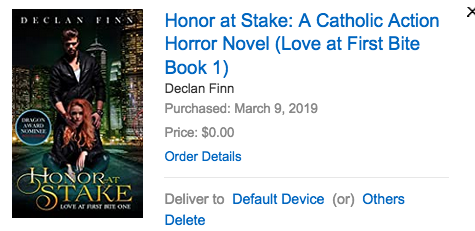
If I found on further exploration that a novel was religious. I deleted it.
If I couldn’t figure out how the multiple genres listed go together, I generally found myself mistrustful and deleted it.
If the book has been out several years and not garnered a single review, I deleted it. I’m not going to be the first at this point.
If a book just had a whole slew of bad reviews in general, I deleted it.
Before I close this out I want to talk about just a few odd things I encounter. Remember this is what I spent a large portion of the last two months immersed in. They don’t all go well together, but they are just things I noticed or thought about.
First, I very quickly noticed that Goodreads seems to have a lot of import errors in their book blurbs. Spaces and apostrophes seem especially likely to be lost. At first, I thought I was seeing a lot of sloppy authors, but it quickly became obvious this wasn’t the case. I’ve been on Goodreads for many years and never noticed this. So, I’m assuming something went wrong somewhere. I really hope they can fix it.
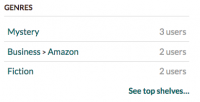
Second, thousands of books in a whole variety of genres are getting shelved by people as business>Amazon. It’s not that I don’t understand how this happens. Writing books is a business, after all. But it was just so common I had to eventually take notice and wonder about it. It was just weird.
So was the fact that if I went to Amazon cloud and found an update was available. I updated my copy, even if I was also about to delete it. I don’t know why I did this but I 100% did.

Next, I’d like to drop a special hello to GrumpyOldBird. They and I apparently follow one another on Goodreads (though we don’t really know each other). I scrolled down to the review section of literally thousands of books and saw their face. They have even more books than I had when I started this process and there must have been a lot of overlap. Seeing their avatar simply became part of the process after a while.
I also made a few observations about genres that I touched on above, but want to expand on here. Genres are sloppy. YA, NA, Adult, I read descriptions with 12-year-old protagonists that were obviously adult books (one even with a warning to this effect) and books with 29-year-old heroines that were very obviously YA plots (not even NA, but YA). I get so frustrated with this. Not so much on the younger end. I can imagine a lot of adult themes involving children. But too often what I was seeing was an author who didn’t appropriately age the character to the genre they wished to write for. I mean, you’re not going to have a world-renown expert with two PhDs and an established career at 18. That’s not even possible if you allow for geniuses in fantasy worlds. And it just doesn’t feel right to read about a 40-year-old angsting over whether or not to have sex with their teenage-like crush.
This fudging of genre guidelines is complicated by the sad tendency of people to label everything written by a woman as YA, whether it actually is or not. I saw this with my own book when it first came out, though I don’t talk about it often. The character is married with a child. I never once considered it YA while writing it. But people so consistently labeled it YA that I started calling it “fantasy with surprising YA cross-over appeal.” I was confused by the YA labels at the time. Now that I better understand how and why this happens I wish I hadn’t even conceded that much.
As a sub-point to this, authors and publishers seem to have a really hard time matching age-appropriate cover models to their books. I saw so many YA books with youngish heroines that had covers depicting sexy models. I even tweeted about it at one point. This book cites Harry Potter as a comparative read, for example:
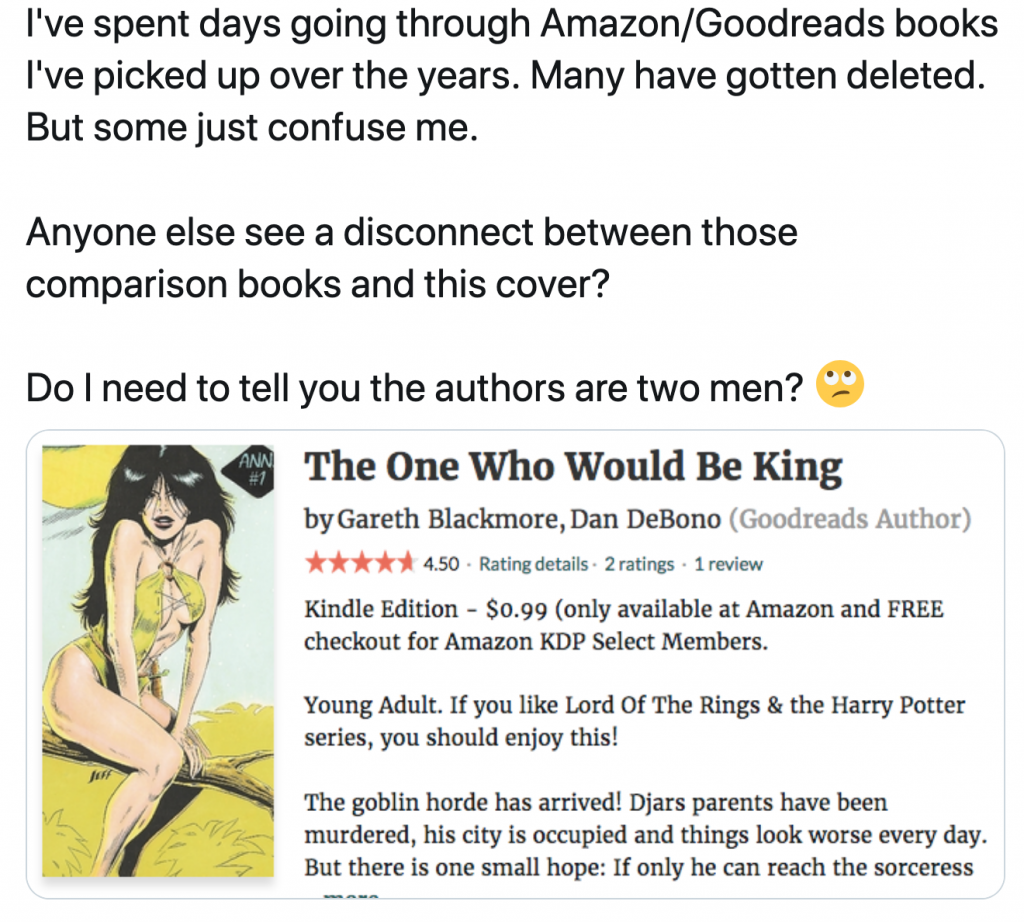
I mean, if you’re going to use an illustrated cover, why not actually draw a tween? Who is the market for this book?
Another had a 15-year-old heroine and the cover was the outline of a busty, clearly naked woman, with erect and obvious nipples. And I can’t even count how many young teen girls save the world, but according to the cover do it in crop tops and tight leather, while standing provocatively (and looking 25). It’s little wonder I downloaded so many YA books without realizing they were YA.
So much of this seems obvious and avoidable on author/publishers parts, but since I’ve had many of these books since 2012 and the problems persist, they are apparently worth mentioning again…and again…and again.
I’ve talked a lot about reasons I deleted books and the discussion on what made me keep them instead could be wrapped up as the opposite of what I said above. But I’ll dig a little deeper.
I tended to keep books by or about people I feel need more representation, including LGBT+ titles or ones with older, fatter characters, or characters of color. I am well aware that I kept some MM romance books that are of questionable quality and/or have problematic content because they are LGBT+, for example.
I also kept any book I won, even if I would have deleted it otherwise. I really do try and review books I win. And I almost certainly kept all books with authors whose last names start with Q, X, or Z. Theses are ones I always struggle to find for my author challenge.
I kept those that I knew to be Saint Louis’ authors and/or books set in Saint Louis. I know I missed some and deleted them. But if I knew (or saw my helpful past note to myself ) that they were local-to-me I tended to keep their books because I like to support local authors. That’s why I picked the book up in the first place a lot of times.
Lastly, even within genres I was otherwise clearing out wholesale, if there were an unprecedented number of good reviews or it was by an author I respect, I likely kept the book. Plus, there were plenty of books that simply still looked interesting to me and didn’t contain any of the elements above that made me choose to delete it.
I don’t know if I can stress enough how difficult this whole process was for me. Getting rid of unread books is not a natural state of affairs in my world, even if you don’t consider money. I admit that I got a lot of them during free days. But there was significant time and dedication put into collecting some of the series that I simply threw away. But if you do want to talk money, I had to make a considered effort never to think about how many dollars worth of ebooks I simply tossed. They normally cost between $0.99 and $3.99 (some are more, but my favored genre usually falls in the $4 range) and I deleted over 3,000 of them! That’s between $2,970 and $11,970 (at least). It’s mind-boggling.
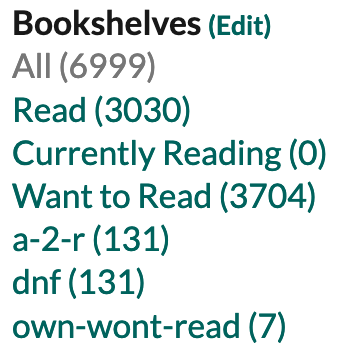
By the time I finished I was left with 3,704 books, though a couple hundred of those are physical books. That’s still more than is ideal. I was aiming for 2,000 ebooks and I didn’t make it. But I still cut the number of books I own in roughly half. I’m calling that a win anyhow.
I often say (though the phrase doesn’t originate with me) that buying and reading books are separate hobbies. It’s true. And I have enjoyed collecting books. I have no intention of stopping. In fact, I probably added 30 books (mostly audio) even as I deleted others. But I finally had to admit that my book collection was actively impeding my ability to read books. Not knowing what I own made picking a book difficult. This purge has been a long time coming.
Having said that, I think the timing is worth a mention. As I’m sure has escaped no one’s notice, we are in the middle of a pandemic, and my family and I have been social isolating. I have literally left my house (other than dog walking) half a dozen times in a matter of months.
As an introvert, I am probably handling this better than my extroverted brethren. But I am still feeling the effect. It creeps up in odd ways. I find myself constantly wanting to share mundane things on social media and I know I’m not the only one to say I’m having trouble sinking into a book lately. I recognize the choice to take on the ultimate organization of my digital bookshelves as having a dual purpose. It allows me to engage with reading even when I’m largely unable to and it’s a stress-relieving technique.
I often joke (and it is a joke) that I color coordinate my panty drawer when stressed. But the idea of finding something you can control when everything else feels out of control is no joke. When I had a difficult case as a social worker I cleaned my desk. When I’m angry at home, I often find myself folding laundry or reordering the pantry. It’s that sense of creating order out of chaos that I find soothing and I 100% recognize this project falls in the same vein.
It’s part of why I felt like this post was necessary for me. It’s a repeat and I know it. I wrote almost the same one when I deleted a ton of books I’d received as book review requests. But I needed this moment of writing it to remind myself that the project is done. Otherwise, I’ll keep coming back to it and trying to find that same soothing mindlessness that comes with ordering disorder.
I realize that this is largely a wall of text that in all likelihood few will find useful. But if someone has gotten this, far, I think what’s most important to remember is that none of these examples or issues I made up. They are all things I encountered in reading the synopses and reviews of 6,000+ books. And while some of my likes and disliked my be different from others, many of these are objectively bad. Take from that what you will and maybe try and avoid making the mistakes others before you already have.
Stay safe out there.

